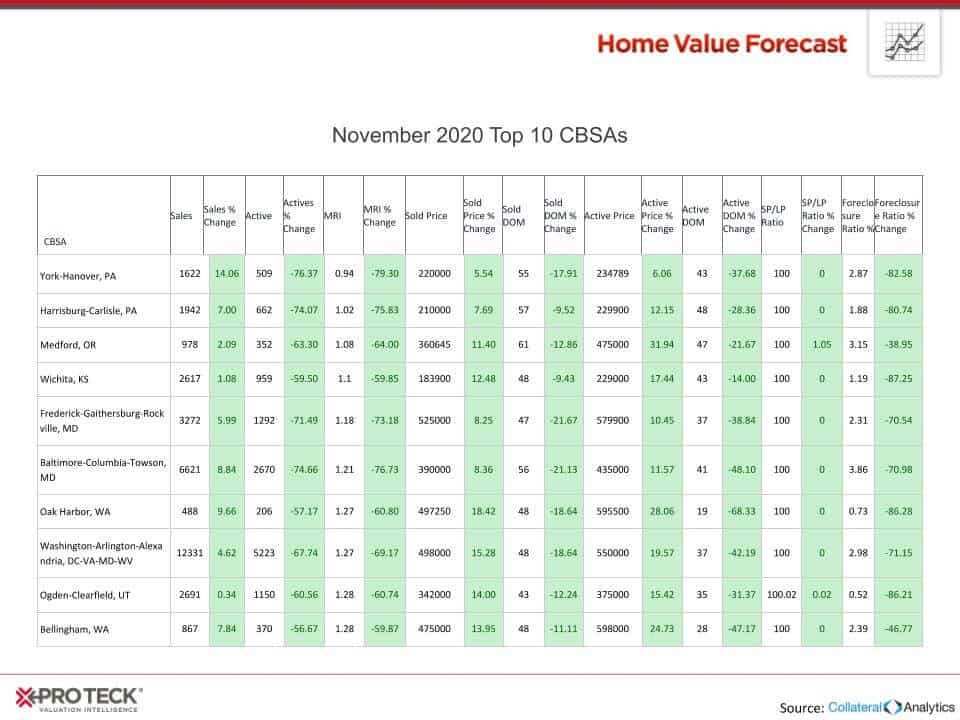Valuation Blog
Hybrid Appraisals: The Future of Property Valuation
The valuation landscape is undergoing a significant transformation, driven by the GSEs’ focus on modernization. Hybrid appraisals will reshape the industry, offering an innovative solution that enhances speed, scalability, data integrity, and consistency in property valuation, in addition to reducing cost. We have already seen a shift in industry acceptance of these products. Embracing hybrid appraisals is not just an upgrade—it’s a game-changing move that sets a new standard for efficiency and accuracy in property valuation. Lenders can partner with SVI to seamlessly integrate hybrid appraisals into their workflows, ensuring a competitive edge while delivering exceptional borrower experience.
As of March 22, 2025, Fannie Mae has officially expanded its hybrid appraisal policy to boost appraiser efficiency and capacity. This move enhances lender flexibility, streamlines underwriting workflows and reduces loan origination times, offering a faster, more seamless experience for borrowers.
Following suit, Freddie Mac implemented similar changes effective April 7, 2025.
With both GSEs now on board, hybrid appraisals are no longer an emerging trend—they’re the new standard. These updates reflect a shared commitment to modernizing property valuation, improving appraisal capacity and accelerating the mortgage process for everyone involved.
What Are Hybrid Appraisals?
Hybrid appraisals (1004 Hybrid/70H) are a modern valuation solution that combines the efficiency of remote analysis with the rigor of standardized data collection. They rely on a Property Data Inspection (PDI), which includes high-quality photos, a digital ANSI-compliant floor plan and comprehensive property data required to complete the appraisal. These appraisals address key industry challenges, such as reducing turnaround times, improving scalability and maintaining the accuracy and integrity expected by lenders.
Eligible Transactions for Hybrid Appraisals
Hybrid appraisals will now be available for a broader range of transactions, making them even more accessible for lenders. The following are eligible:
- Existing one-unit properties, including condos and PUD units
- Principal residences, second homes, and investment properties
- Under construction properties
- Existing properties with incomplete construction or renovation projects
- Community land trusts and properties with resale price restrictions, including loans using the Affordable LTV feature
- Texas 50(a)(6) loans
- Loan types: Purchase, limited cash-out refinance, and cash-out refinance transactions
This expanded eligibility gives lenders more flexibility to use hybrid appraisals across a wide range of property types and transaction scenarios.
Ineligible Transactions for Hybrid Appraisals
Despite the expansion, some transactions remain ineligible for hybrid appraisals. These include:
- Two- to four-unit properties
- Co-op units
- Manufactured homes
- Proposed construction
- Construction-to-perm loans (single-close and two-close)
- HomeStyle® Renovation and HomeStyle® Energy loans
- DU loan casefiles that receive an Ineligible recommendation
- Manually underwritten loans
For these transactions, lenders must continue using traditional or alternative appraisal methods.
Exercising Hybrid Appraisals
When exercising a hybrid appraisal, the lender must complete all of the following:
- Obtain a property data collection and successfully submit to the Fannie Mae Property Data API.
- Provide the property data collection to an appraiser for the completion of a hybrid appraisal based on property type using either Form 1004 Hybrid or Form 1073 Hybrid.
- Submit the hybrid appraisal to the Uniform Collateral Data Portal (UCDP).
- Perform an appraisal review in accordance with this Guide. deliver the loan with the hybrid appraisal to Fannie Mae
SVI’s Seamless Hybrid Appraisal Workflow
At SVI, we’ve developed a fully integrated process to deliver high-quality hybrid appraisals, leveraging advanced technology and a national network of experts:
Property Data Inspection (PDI) Creation:
SVI schedules a PDI, conducted by certified brokers and agents from SVI’s nationwide Partner Network with deep local market expertise. Each inspection captures detailed property data, including high-resolution photos and a precise ANSI-compliant digital floor plan.
AI-Powered Quality Control:
The PDI undergoes rigorous quality control pairing human expertise with AI, computer vision tools, and location validation to ensure accuracy, data integrity, and completeness.
Appraisal Development:
A qualified appraiser uses the verified PDI to produce a comprehensive hybrid appraisal.
Final Review and Delivery:
The appraisal is reviewed in SVI’s Intelligent Quality Control Platform by SVI’s QC team and delivered to the client along with the detailed PDI, ensuring transparency and confidence in the valuation.
Why Choose SVI for Hybrid Appraisals?
SVI is at the forefront of the valuation modernization effort, offering a best-in-class hybrid appraisal solution. Our process is powered by VALIDITY Pro, a GSE-verified property data collection app, and supported by our national networks of certified brokers, agents and appraisers. This end-to-end control ensures:
- Speed and Efficiency: Reduced turnaround times and improved scalability.
- Enhanced Quality and Integrity: Advanced QC processes ensure compliance, accuracy and trustworthiness.
- Integrated Solutions: Every stage of the hybrid appraisal process is managed in-house for superior workflow control.
Benefits of Hybrid Appraisals
- Faster valuation timelines to accelerate loan closings.
- Scalability to handle increased appraisal demand.
- Consistent and reliable data collection through Property Data Inspections (PDIs).
- Enhanced borrower experiences through streamlined processes.
Be Ready for the Future
Hybrid appraisals are already redefining industry standards. Take action today to position your organization as a leader in modernization. With SVI’s innovative tools, commitment to data integrity and expertise, you can elevate your valuation strategy and deliver better outcomes for clients and borrowers.
Contact us now to learn more about our hybrid appraisal solutions and how they can transform your approach to property valuation.

